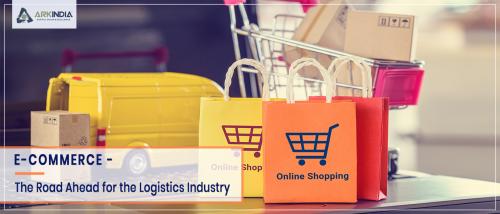
The modern world is crowded with more and more online shops since they don’t need actual physical space like brick and mortar stores. From a seller’s perspective, opening an e-commerce store is way easier than getting into the complexities of an actual store. The digital age has affected everyone in a positive way. Even sellers who have been in business for ages have found new ways to expand using the online tools present in the world today.
This e-commerce boom has magnified even more in recent times since the Covid-19 pandemic happened. People were forced to live a life of isolation, but e-commerce became even bigger. Since people couldn’t go out anymore, they resorted to ordering things online. Initially, even that was very difficult because the initial panic meant that borders were closed. But eventually, things started working again, and even though life didn’t restore to its previous freedom, e-commerce did. In fact, they got even better and more efficient. How did they manage that?
To make e-commerce possible, logistics is the physical, real-life element that is required. We can’t really replace the material world with all things digital without the help of a solid logistics system in place. The e-commerce industry is a giant and so on the back of an amazingly devised logistics industry. Not less than a century ago, logistics used to simply mean a trucking company that worked on transporting goods from one place to another and nothing more than that. Now in the modern age, when you think logistics, it is a completely well-oiled machine that includes warehousing, transportation, and even customer care.
The logistics industry quickly adapted to the changes required to make the entire operation safe for e-commerce during the lockdown. The risk of spreading the virus was minimized based on safety measures taken by the logistics industry. If it hadn’t happened, the world would be in a stalemate with no solution. Logistics includes a complete solution that spans a wide web of manufacturers, suppliers, distributors, online portals, and then, in the end, the customer.
Technology: The Glue between Logistics and E-commerce
One thing that has drastically affected the growth rate of both e-commerce and logistics in tandem has been technological development. The modern advancements in warehouse and transportation management have improved how online business is done. There is monitoring technology in software called WMS (Warehouse Management System), which allows you to have real-time information that is dynamic and changes all the time. Such software allows you to make good business decisions based on well collected and accurate data.
Advanced level GPS tracking and real-time route altering systems allow for efficient deliveries and quicker responses to issues. There is so much more, like automation, AI, and efficiency based machine learning, that all help make the process more streamlined and cost-friendly.
E-commerce’s logistics requirements are significantly different from the regular export system. For e-commerce, deliveries must always be on-time. Minimum transit time is necessary. For e-commerce individual parcels are shipped instead of the same product in bulk. That also creates a complexity in managing a single parcel and keeping it safe. So packing it well is also one the points that need to be considered. Warehouses need to be more efficient in terms of organization because of how much time-crunch is involved.
The Future of E-commerce Logistics
There are many technologies in development that will come in handy when it comes to improving the scope of logistics in the E-commerce business. These futuristic technologies include…
Internet of Things (IOT): This technology involves the network of a lot of devices and people on the same network, facilitating easier monitoring of performance of machines, energy consumption, inventory status etc.
Artificial Intelligence: AI helps in replacing menial jobs with robots that can take care of fulfilling the process requirements while eliminating human errors. There are also chatbots that count in the same category that make customer experience better.
3D Printing: As 3D printing will evolve in terms of quality it will make it possible to have virtual warehouses where you can have all the product designs in one place, which can be manufactured as they’re ordered, eliminating the need to stock up.
Drone Delivery: Drones will allow for a revelation in delivery. They will chop down the time it takes for the delivery significantly by taking to the skies. It will make advanced tracking and monitoring possible too.
Driverless Vehicles: Driverless vehicles will be in circulation soon once all the kinks have been worked out. It will enormously reduce costs and reduce human efforts too. Even accidents are caused mostly by human error, and the rate of those will go down as well.
There are three levels of e-commerce; International, intercity, and intra-city (hyper-local). International shipping deals with deliveries across national borders, and intercity refers to shipping between city or state borders. It is the newly emerged and strongly growing intra-city that has picked up pace in recent times. This includes deliveries of food, groceries, and medicines. This is a very convenient service that is mostly found in metro cities. Even these small level delivery services require modernized logistics support to be able to run smoothly.
The growth of E-commerce is only going to rise further. The way the technology around it is growing, it will be an unstoppable juggernaut of an industry. ARK India is the 3PL (Third Party Logistics) you need! We have world-class solutions for warehousing, shipping, inventory management, transportation, and much more. Contact us today and avail industry-standard logistics services!.